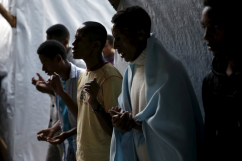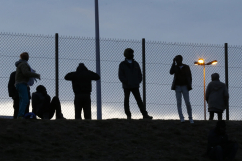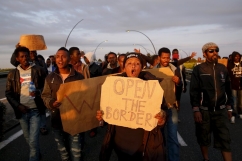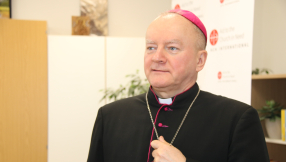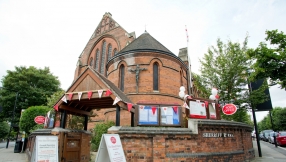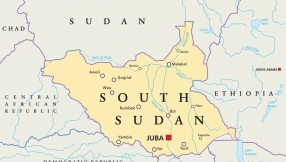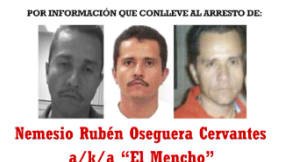High summer and life, for many in Europe, is a beach. This year again the Mediterranean is the stage for two seasonal dramas: the one, the annual vacations that give many their main chance to meet fellow Europeans from other countries; the other, the washing ashore of desperate refugees from wars and poverty in the Middle East and Africa, some already dead.
The first is a chance for pleasure, discovery and to enjoy the peace and open borders that most cite as the main benefits of the European Union, 70 years after the end of World War Two – even if accompanied by national stereotype grumbles about beach-towel Lebensraum, noisy joie de vivre and importunate seaside Romeos.
The second has triggered a poisonous round of every-man-for-himself bickering among the EU's 28 governments and the Union institutions in Brussels over how to deal with record numbers of migrants arriving by sea and land and heading across Europe.
More even than that other Mediterranean summer theatre that has been the Greek volte-face on German-prescribed austerity to stay in the euro zone, EU divisions on the migration crisis have brought on dire warnings that populist nationalism could propel Europe back towards its nightmarish divisions of last century.
Amid confrontation with Russia in the east, and with Britain soon to vote on breaking away in the west, this summer sees a bout of soul-searching over whether the bloc can ever subsume national rivalries to a common good. Can half a billion citizens can ever feel "European" more than Austrian, Belgian or Croatian?
"If this is your idea of Europe, you can keep it," a furious Italian Prime Minister Matteo Renzi was quoted telling fellow EU leaders as traditionally Europhile Italy lost patience with a lack of help.
Hungary, which tore the first rent in the Iron Curtain in the daring summer of 1989 before the Berlin Wall fell, is building a fence on its border with Serbia; Britain is adding fencing too, round its Channel Tunnel beachhead at Calais. Even founder members France and Italy have feuded on their frontier.
"Mr Europe"
At the eye of the storm is Jean-Claude Juncker, president of the European Commission, the bloc's Brussels executive.
Claiming – despite scepticism from national capitals – a democratic mandate due to being the lead centre-right candidate in last summer's elections to the European Parliament, Juncker has become a vocal critic of governments for lacking solidarity.
"Je m'en fous!" he snapped – "I don't give a damn" – in singularly undiplomatic French during a June summit, as equally irritated leaders rejected his demand for mandatory quotas on member states to take in asylum seekers from Italy and Greece.
Juncker meant that as long as they collectively reached his target of 40,000 to be accommodated elsewhere, then quotas did not matter. But offers are still well short of the total.
Clashes between the member states gathered in the Council on one side of Brussels' Rue de la Loi and the Commission on the other are a fixture of a Union where power – and money – remain overwhelmingly controlled from national capitals but where EU officials see it as their duty to promote closer integration.
However, the struggle has been intensified by the arrival of the outspoken Juncker, at a time when economic malaise has left many leaders struggling for votes against anti-EU nationalists.
No slouch himself at pushing national interests when as prime minister he defended Luxembourg's low taxes from charges of unfair competition, Juncker shrugs off attacks by the likes of the UK Independence Party and French National Front on unelected Eurocrats, and accuses former peers around the summit table of pandering to chauvinists who want to wreck the Union.
"Those mainly responsible for a lack of confidence in the EU are not the Commission but national governments," he said during a tribute in March to his role model Jacques Delors, the integrationist Commission boss of 1985-95. "Their attitude is the opposite of the European spirit. It's a total disaster."
Anyone speak European?
Juncker has appealed over governments' heads to citizens' consciences. He has also forged alliances with an EU parliament keen to expand its power despite wariness in member states of a body for which over half of Europeans don't bother to vote.
He speaks of a "political not technocratic" executive, ready to make up a "democratic deficit" in the Union's institutions.
That is a forlorn hope, some sceptics say, arguing that the EU has outlived its usefulness to citizens who feel, to use the ancient Greek, part of a national "demos", not a European one.
Travel round Europe this summer and national sentiment still rouses a crowd. At a sporting festival in the mountains east of Rome, I watched Italians, Germans, Greeks and others stand and belt out national hymns before the contest – then sit in bemused silence for the less familiar EU anthem, Beethoven's Ode to Joy.
The Union's blue flag may be increasingly ubiquitous, but efforts to promote a sense of European identity face an uphill battle. Yet for all the gloom in Brussels ahead of an autumn of looming arguments, some also see signs of growing EU cohesion.
"Recent reports of the death of the European Union were greatly exaggerated," Washington's Pew Research Center reported in June after an annual survey found a recovery to 61 per cent in the share of Europeans holding a positive view of the project, after a couple of years when it dipped close to 50 per cent.
Polling for the Commission's annual Eurobarometer survey in May showed 38 per cent of people identified only with their own country and not with Europe, down three points on a decade ago and sharply lower than when economic crisis hit in 2010.
The British are outliers, with nearly two in three disowning being European. But across the EU, 60 per cent of people said they felt at least part of their identity is shared with others beyond national borders, up from 51 per cent five years ago.
As they criss-cross those frontiers this summer in search of a taste of the unfamiliar, few expect – or want – to see historic cultures homogenized in a United States of Europe.
But nor does the majority, amid widespread sympathy for the jobless youth of Europe or for the Syrian refugees, seem ready to retreat entirely behind old bulwarks of mutual suspicion.
And as Dimitris Avramopoulos, the EU home affairs commissioner, argued last week, the very reach of the migration crisis shows the limits of national solutions. That, he said, puts pressure on governments to agree in Brussels to collective measures – even, he stressed, when they are not popular.











